
Jess B. Weiss
Jess Bernard Weiss (1917 – 2007) was an American anesthesiologist. Best known for designing the Weiss needle for the placement of epidural catheters

Jess Bernard Weiss (1917 – 2007) was an American anesthesiologist. Best known for designing the Weiss needle for the placement of epidural catheters
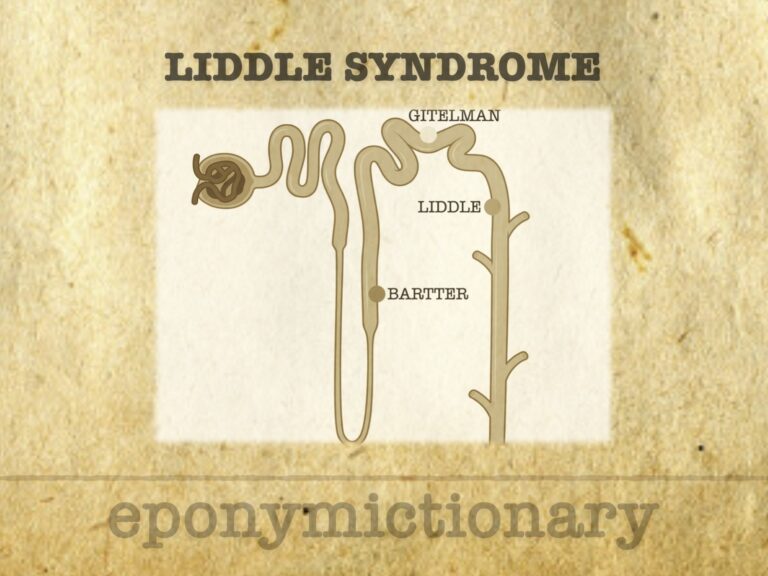
Liddle Syndrome: Monogenic hypertension due to ENaC overactivity in the collecting duct. Causes sodium retention, hypokalaemia, low renin and aldosterone—pseudo-aldosteronism.
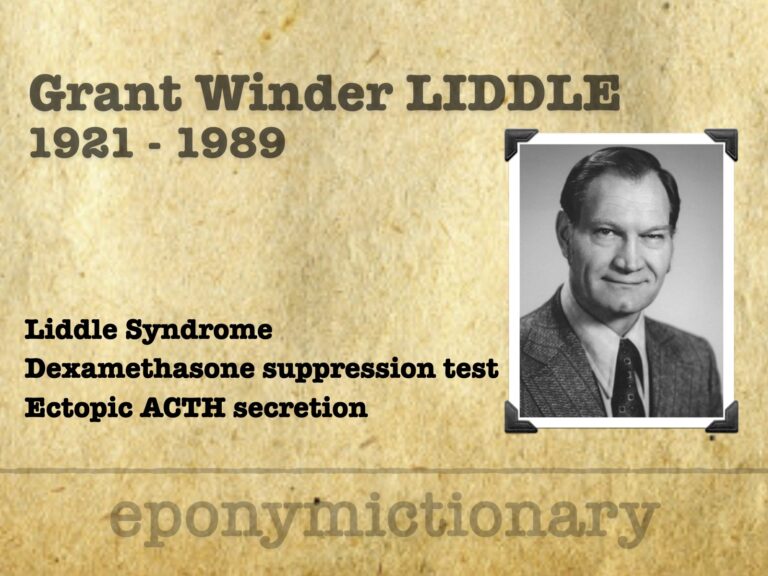
Grant Winder Liddle (1921-1989) American endocrinologist. Pioneer of endocrine diagnostics; discovered Liddle syndrome, developed suppression tests, and defined ectopic ACTH
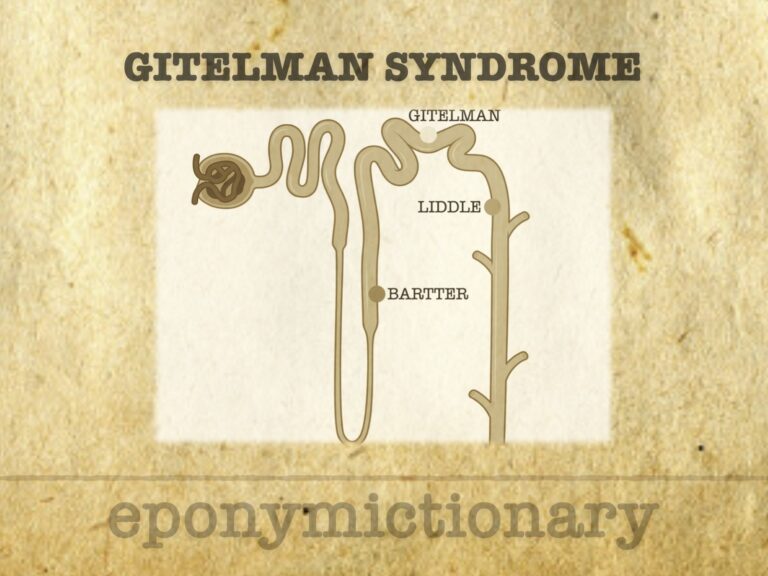
Gitelman Syndrome: Inherited defect in Na⁺-Cl⁻ cotransport in the distal tubule, causing hypokalaemia, alkalosis, hypomagnesaemia, and hypocalciuria—thiazide-like effect.
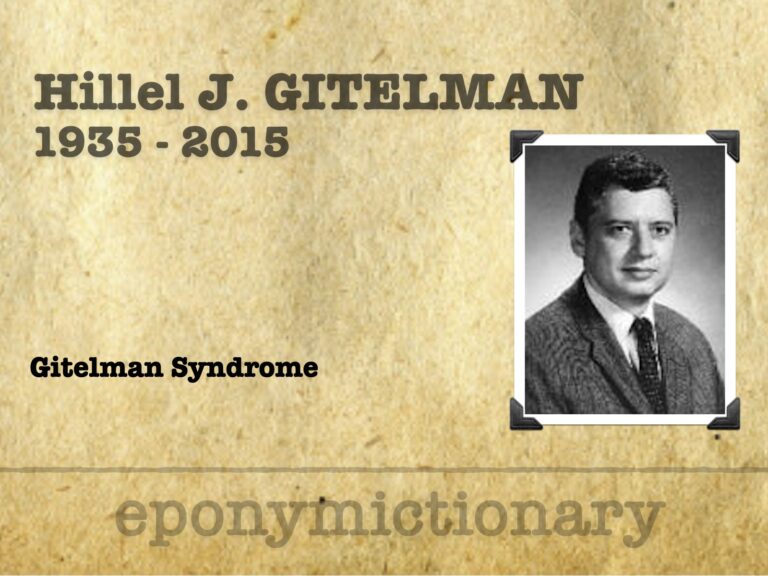
Hillel J. Gitelman (1932–2014) American nephrologist. Described Gitelman syndrome, a renal tubulopathy mimicking thiazide effect with hypokalaemia and hypomagnesaemia.
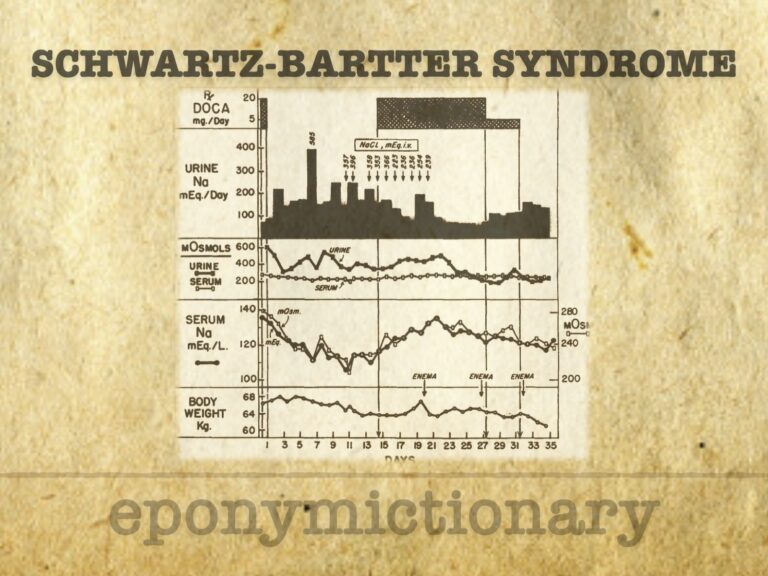
Schwartz-Bartter Syndrome (SIADH): Excess ADH leads to water retention and dilutional hyponatraemia, with low serum sodium and osmolality but inappropriately concentrated urine.
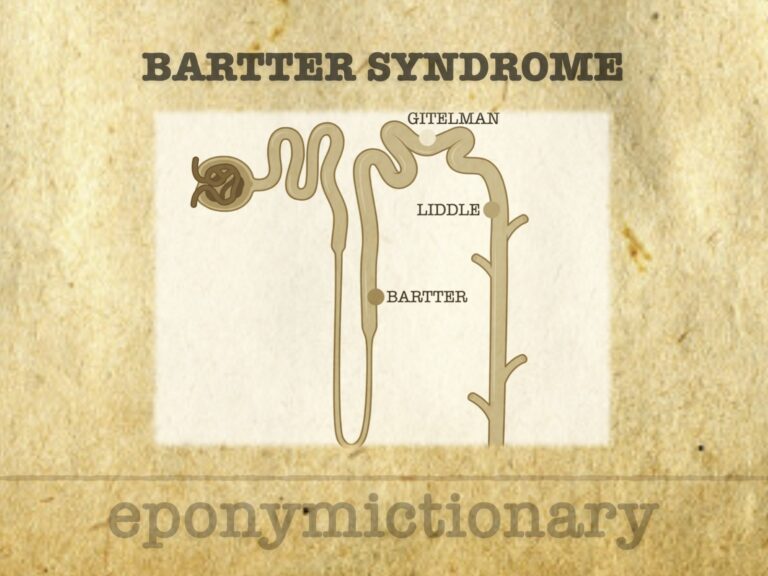
Bartter Syndrome: Renal tubulopathy with hypokalaemic alkalosis, high renin and aldosterone, normal BP, and polyuria—mimics loop diuretic effect at the thick ascending limb.
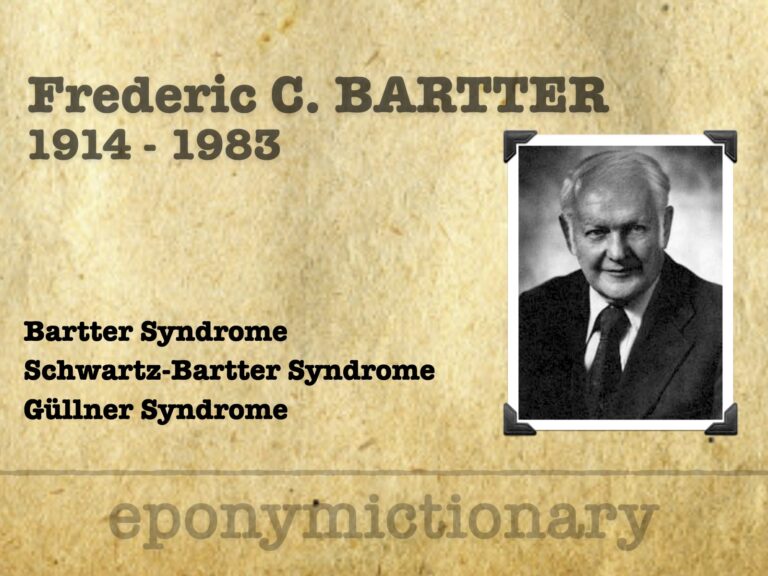
Frederic Crosby Bartter (1914–1983) American endocrinologist. Defined Bartter syndrome, co-described SIADH, and advanced adrenal and renal physiology.

Augustus Desiré Waller (1856–1922) was a British physiologist who recorded the first human electrocardiogram (ECG) in 1887. His work laid the foundation for modern electrocardiography and inspired Willem Einthoven’s innovations.
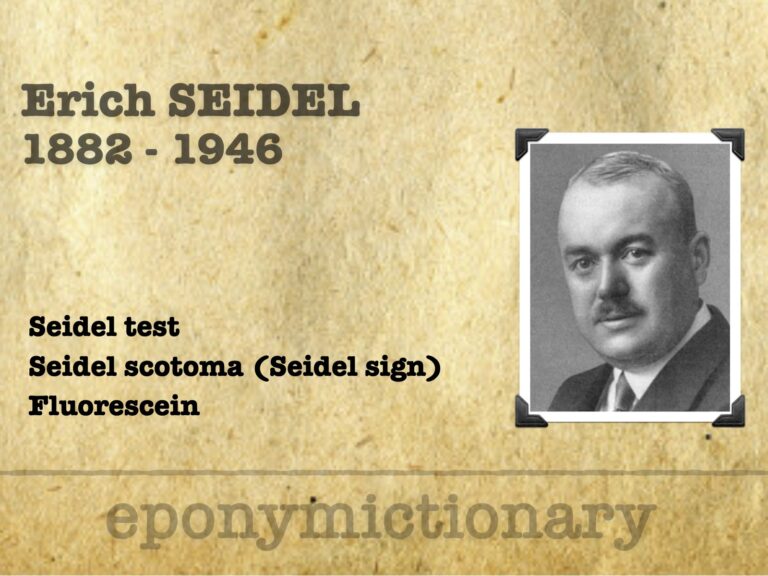
Erich Seidel (1882–1946), German ophthalmologist. Described Seidel scotoma (1914): sickle/arcuate blind-spot extension in early glaucoma.
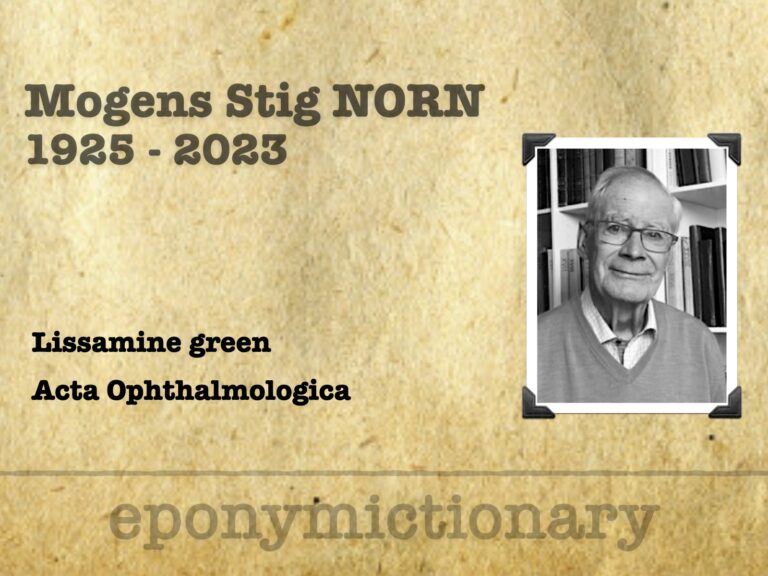
Mogens Stig Norn (1925–2023), Danish ophthalmologist. Introduced lissamine green vital staining (1973); chief editor Acta Ophthalmologica (1975–88).
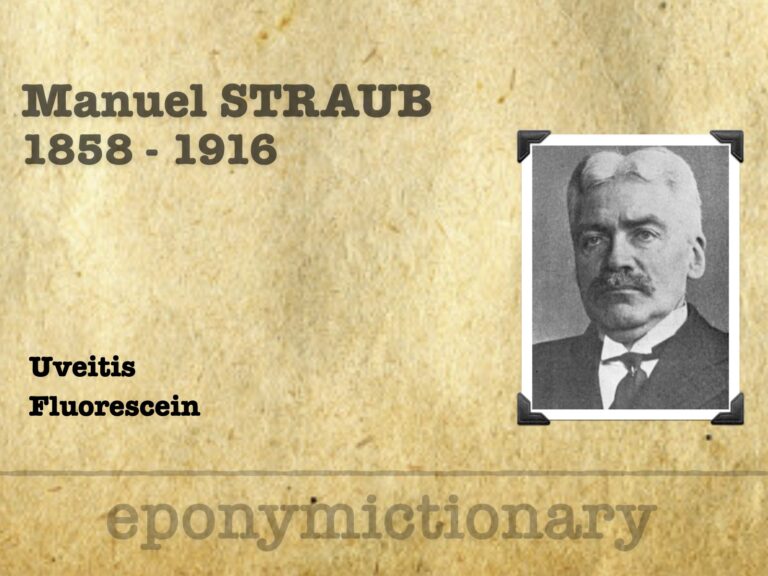
Manuel Straub (1858–1916), Dutch ophthalmologist. Early human fluorescein corneal staining (1888) and landmark lens-induced uveitis work